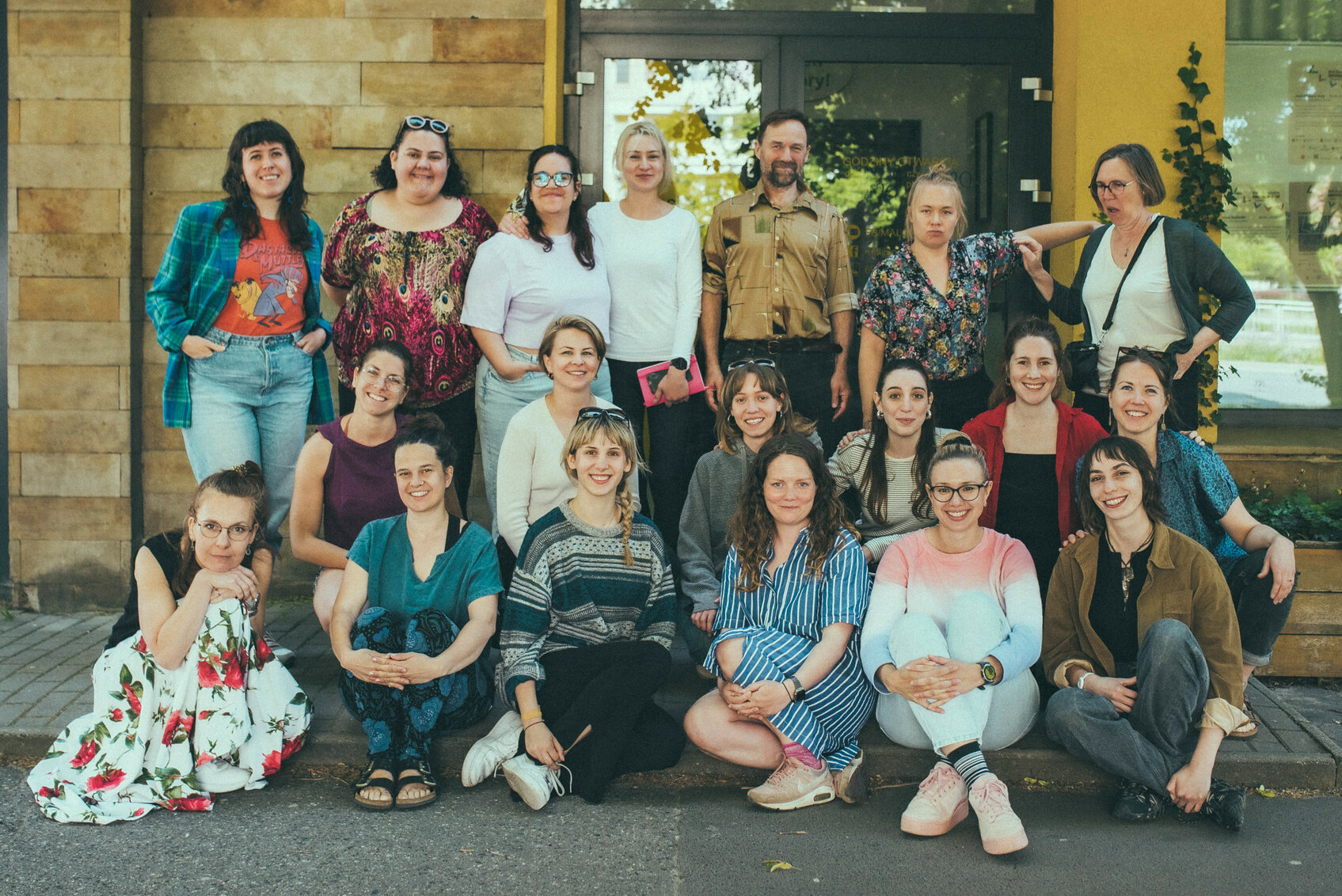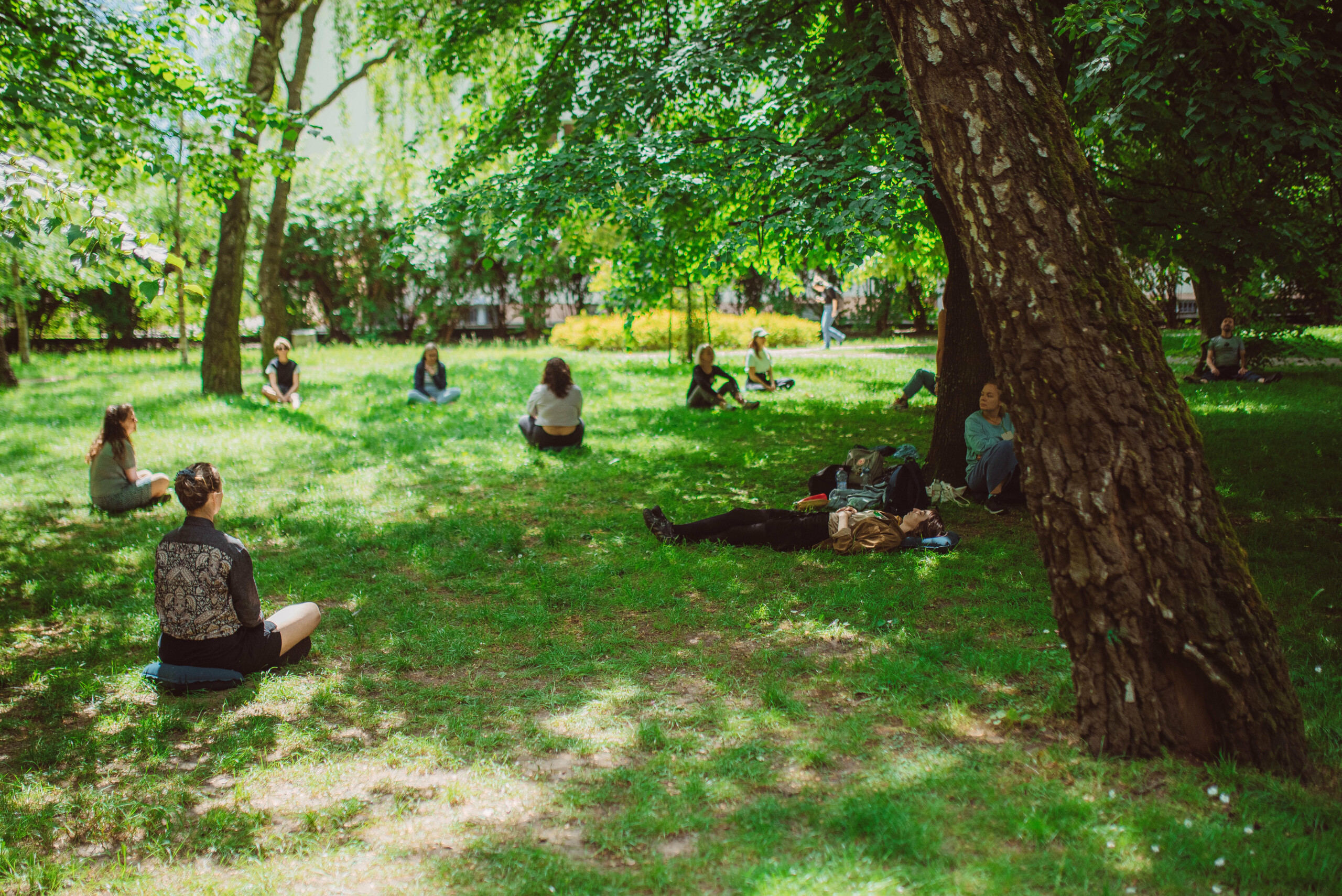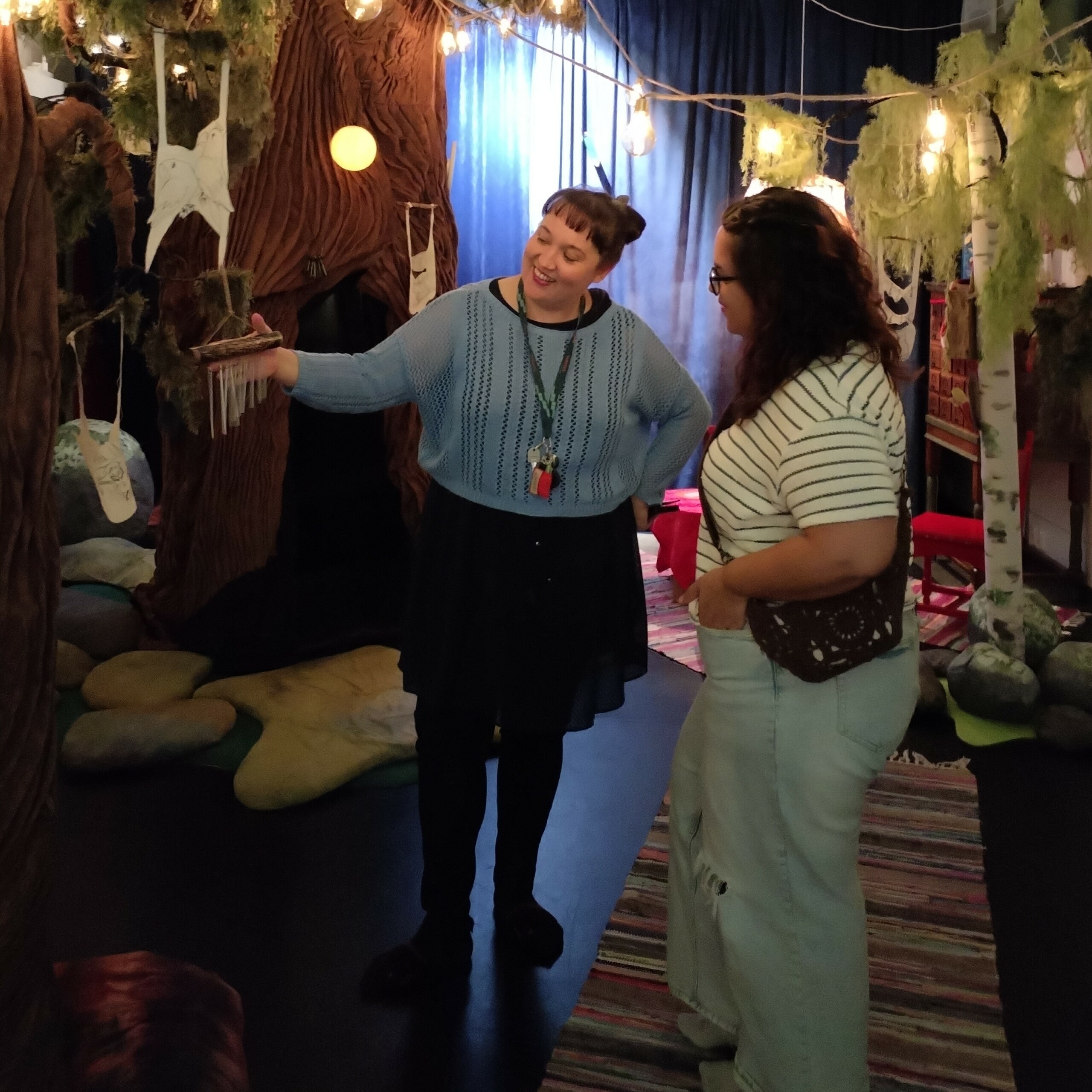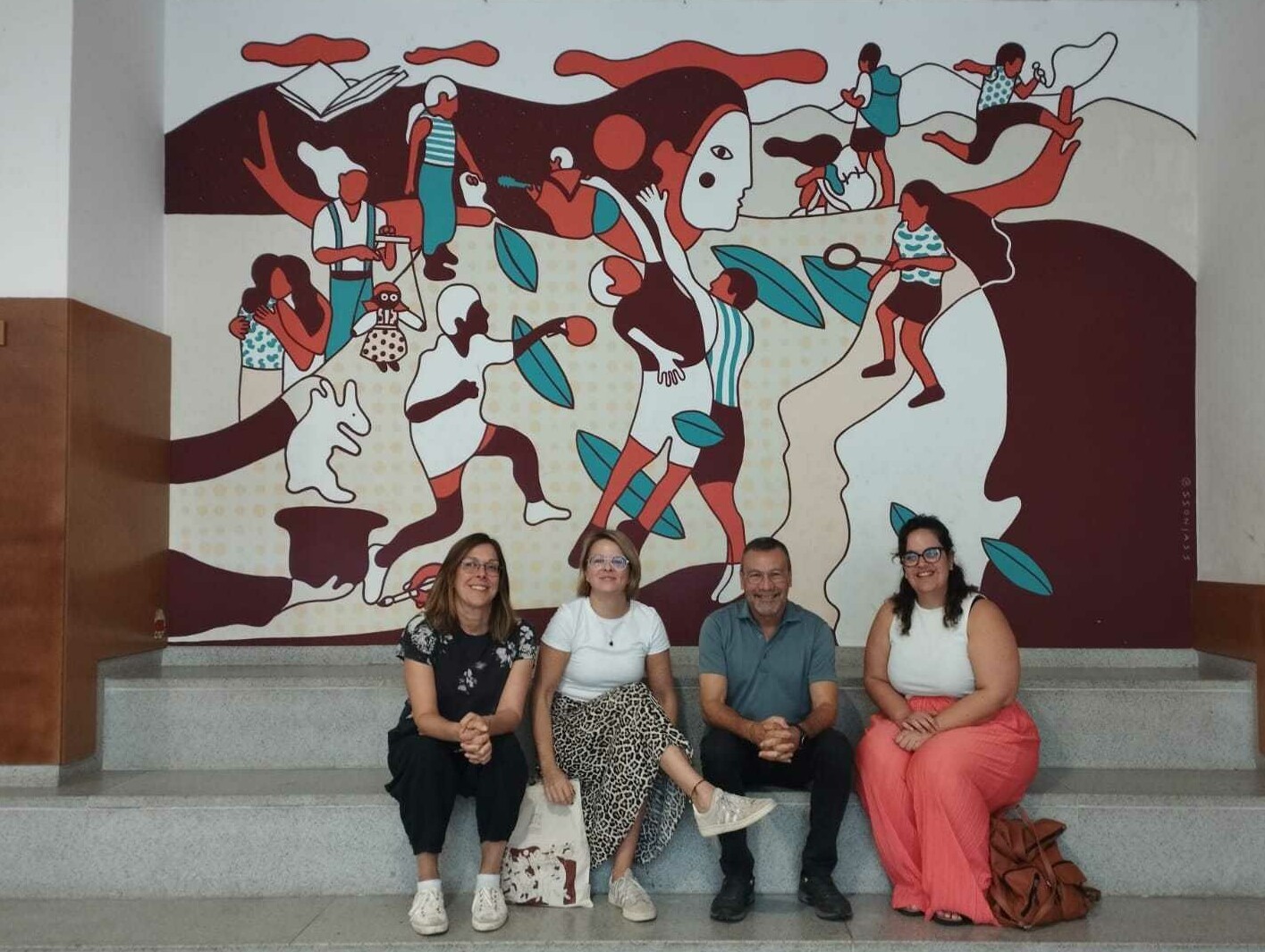In this blog entry, we’ll take a peek into the experience of participating in a professional work exchange programme intended for cultural professionals under the age of 35. The Lights On programme organised by the European Network of Cultural Centres ENCC focused on the themes of ecological, cultural and social sustainability, inclusive placemaking and reciprocity. The programme consisted of three parts: 1 week-long training for all 16 participants in Warsaw in May, followed by an exchange with one of the participants visiting each other. The intention of the exchange programme is to strengthen the professional skills and capacities of the participating cultural professionals.
Preparing for the journey
From the group of 16 women, I was assigned another network professional as an exchange partner. Silvia Espinach Garcia from Federacio Cultura Catalunya visited Finland in September, to catch a glimpse of the national network of children’s culture centres. In October it was my chance to travel to Barcelona to explore the network of cultural centres in Catalonia.

During the first part of the programme, 13th –17th of May a group of 16 women under the age of 35 gathered in Warsaw with two trainers, Dagna and Oleg. The five-day training hosted by Ośrodek Kultury Ochoty (OKO) consisted of different exercises, lectures, group discussions and study visits to local cultural centres.
Exploring sustainability in action
Within the educational framework we participants shared ideas, experiences and questions, challenging ourselves and one another. Sustainability as a concept and practice gained new layers from sharing our national and local circumstances while engaging in exchange with the local communities. Aspects of the kaleidoscope picture of sustainability included connections between culture, well-being and nature, civil participation and even activism for the preservation of natural environments and species, cultures and places.
Sociocultural centres and operators are focused on fostering a consciousness towards a more ecological mindset and lifestyle in communities. In Warsaw, we saw beautiful examples of community gardens and other small green pockets inside the city, where residents actively participated in making their neighbourhood a more welcoming and action-inviting space. We witnessed people making an impact by growing vegetables, learning and teaching new skills, and encountering the different ecosystems in the area.

After our week in Poland, it was time to head back to our daily lives and start planning our exchanges. After the summer holidays it came time for visits – first Silvia’s to Finland and then mine to Catalonia. Taking into consideration the different aspects of sustainability and inclusive placemaking we designed schedules for visits and discussions.

The cultural contexts in Finland and Catalonia share similarities although they are very different. The Catalonian cultural scene is strong and diverse with the state and municipalities supporting third sector operators. Culture is considered a mainstream hobby and people do lots of voluntary work for culture centres. Catalonians are proud of their cultural traditions and heritage and want to preserve it for future generations. At the same time, the culture and the people are changing and there are new needs for culture. The possibility of involving all members of society through culture is still a work in progress both in Catalonia and Finland. Socially sustainable development requires people to integrate with culture while adding new voices and influences to the cultural landscape.
Inclusive spaces and empowering communities
One of the key topics for Lights On was how to create inclusive spaces where people can act on their own initiative and in a mutually supportive way. In a modern society where people are more often seen as consumers than active citizens, it was refreshing to see places where people can take different roles, such as coach, peer and learner. Their self-confidence increases when they are allowed to grow and develop within the organisation, taking on new responsibilities and roles. Something I saw a lot in Catalonia was the importance of memberships in these places and communities for the building of people’s identities.

One of the big societal issues Finland faces today is loneliness in all age groups. We are definitely not as social as the Catalan people, but there are a few tips we could take into consideration to make Finnish society a better place. I was truly impressed by the level of commitment the Catalonians have towards their cultural entities. Voluntary work is common and people take initiative. I was told that the common question asked is “ Could society provide me with the resources to do this”, not “Could society provide this for me”. Of course, this difference in perspectives is due to differences in societies and historical contexts, but there is something to take in about the possibilities of meaningful agency.
Strengthening professional skills and building future partnerships
The programme is as much about the individuals participating as it is about the group learning together and supporting one another. Participating in the Lights On programme took my international skills to a new level providing me with resources that support my growth. I’m thankful for the group that will remain even though the programme is nearing completion. There is always a smart, capable group of young cultural workers ready to give tips, share ideas and support just a group chat away.
Doing a work-related international exchange is also a possibility for growth on more than just a personal level. During the visits we did I met with interesting organisations ready for partnerships and joint projects. This supports our national network and its member organisations. The Finnish children’s culture operators are now better known in 12 different European countries and providing Finnish organisations with access to new ideas.
About ENCC
The Association of Finnish Children’s Culture Centers is a member of the European Network of Cultural Centres ENCC. The network connects cultural centres across the continent with educational programmes, working groups and joint projects.
As a national network and full member of the ENCC, the possibilities provided by the ENCC are available for all member organisations of the Association of Finnish Children’s Culture Centers.

